As the real estate market evolves, many investors are exploring the lucrative potential of short-term rentals. Platforms like Airbnb and Vrbo have revolutionized the industry, making it easier than ever to rent properties to travelers. However, while short-term rentals offer enticing benefits, they also come with their own set of challenges. Here, we delve into the pros and cons to help real estate investors make informed decisions and compare short-term rentals to long-term rentals.
The Pros of Short-Term Rentals
- Higher Income Potential:
- Increased Revenue: Short-term rentals can often command higher nightly rates compared to long-term leases. In popular tourist destinations, the revenue from short-term rentals can significantly surpass that of traditional rentals.
- Flexibility in Pricing: Investors can adjust pricing based on demand, special events, or seasons. This dynamic pricing can maximize revenue, especially during peak periods.
- Personal Use:
- Dual Purpose: Investors can use the property for personal vacations or family getaways when it’s not rented out, adding personal value to the investment.
- Lower Vacancy Rates:
- High Demand: In tourist-heavy areas, the demand for short-term accommodations is often high, leading to lower vacancy rates. This continuous flow of guests can ensure a steady income stream.
- Tax Benefits:
- Deductions: Short-term rental properties may qualify for different tax deductions compared to long-term rentals. Expenses such as property management fees, cleaning, maintenance, and even some travel expenses to manage the property can often be deducted.
The Cons of Short-Term Rentals
- Increased Management and Maintenance:
- Time-Consuming: Managing short-term rentals can be labor-intensive, requiring frequent cleaning, guest communication, and maintenance. Hiring a property management company can alleviate some of this burden but also reduces overall profitability.
- Wear and Tear: Frequent turnover can lead to more wear and tear on the property, necessitating regular upkeep and potentially higher repair costs.
- Regulatory and Legal Challenges:
- Compliance Issues: Many cities and municipalities have enacted regulations that restrict or prohibit short-term rentals. Investors must stay informed about local laws and obtain necessary permits, which can be a complex and time-consuming process.
- Legal Risks: Liability issues, such as property damage or guest injuries, can pose significant risks. Adequate insurance coverage is essential but can be costly.
- Market Volatility:
- Unpredictable Income: Unlike long-term rentals with stable monthly income, short-term rentals can have fluctuating occupancy rates and revenue. Market saturation, economic downturns, or changes in travel behavior can impact profitability.
- Seasonal Fluctuations: In some locations, the demand for short-term rentals may be highly seasonal, resulting in periods of high income followed by off-peak times with minimal revenue.
- Higher Operating Costs:
- Utilities and Supplies: Short-term rentals typically include utilities, internet, and amenities such as toiletries and linens, increasing operational costs. These expenses need to be factored into the overall financial strategy.
- Community and HOA Restrictions:
- Neighborhood Opposition: Some communities and homeowners’ associations (HOAs) impose restrictions on short-term rentals to maintain neighborhood tranquility. Non-compliance can lead to fines or legal action.
Comparing Short-Term Rentals to Long-Term Rentals
When considering investing in rental properties, short-term rentals aren’t your only option. Long-term rentals offer several distinct advantages that can make them a more attractive investment for certain investors.
- Stable Income:
- Long-term rentals provide a consistent and predictable monthly income, making financial planning easier and reducing the uncertainty associated with fluctuating revenue. This stability can be particularly appealing for investors seeking a reliable cash flow.
- Lower Management and Maintenance Demands:
- With tenants staying for extended periods, long-term rentals typically require less frequent cleaning, maintenance, and tenant turnover management. This reduced workload can save time and lower operational costs, making long-term rentals a more hands-off investment.
- Reduced Vacancy Rates:
- Long-term leases generally mean lower vacancy rates, as tenants are committed to staying for longer durations. This consistency ensures that the property remains occupied, minimizing the time and expense of finding new tenants.
- Building Tenant Relationships:
- Long-term rentals allow for the development of stable and positive relationships with tenants. Satisfied tenants are more likely to renew their leases, take better care of the property, and provide a steady stream of rental income over time.
- Predictable Expenses:
- Long-term rentals typically involve fewer variable expenses, as tenants are usually responsible for utilities and minor maintenance. This predictability in expenses helps investors manage their budgets more effectively.
Short-term rentals offer a promising avenue for real estate investors seeking higher returns and flexibility. However, they also require a proactive approach to management, an understanding of local regulations, and a willingness to navigate the challenges associated with market volatility and operational demands. Long-term rentals, on the other hand, provide more stable income and less intensive management but may not yield the same high returns as short-term rentals in high-demand locations.
For those considering diving into the short-term rental market, partnering with a knowledgeable property management company can provide invaluable support, ensuring that the investment is both profitable and compliant with all relevant regulations. Get in touch with Rental Property Professionals to get started renting today!







